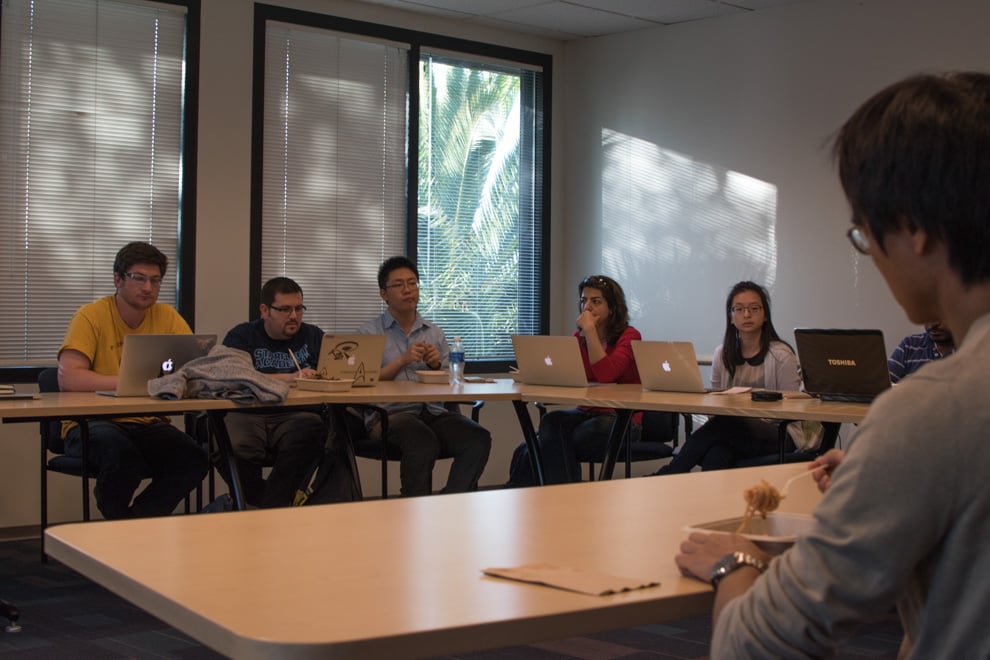At yesterday’s Graduate Student Council (GSC) meeting, members discussed the GSC’s apolitical stance in light of the upcoming Rally the Resistance event and approved several upcoming events such as the 40-year anniversary Viennese Ball.
Apolitical stance
Dean Chahim, a Ph.D. candidate in anthropology, spoke about Rally the Resistance, an event taking place on Meyer Green lawn Friday at 11:30 a.m. in order to “stand in opposition to the rhetoric and policies of the President Elect and his administration,” according to its Facebook page.
“We want to show that Stanford students stand against Trump, and we want the University to declare itself as a sanctuary campus,” Chahim explained.
He also encouraged the GSC chairs to attend the rally and spread the word.
“The Trump administration will affect all of us, and we should raise our voices and take a stand,” he said.
However some council members claimed that the GSC may be constitutionally barred from directly endorsing political candidates and sending funds to political campaigns among other restrictions.
“The GSC is apolitical,” stated GSC Co-Chair and doctoral student in Iberian Languages and Cultures Pau Guinart. “But we want to encourage debate between students.”
Terence Theisen, GSC Co-Chair and Ph.D. candidate in microbiology and immunology, reaffirmed Guinart’s statement.
“The GSC is interested in creating a space for conversation and discussion in which students can share their ideas,” he said.
However, GSC Events Chair and Ph.D. candidate in Iberian and Latin American Cultures Gabriela Badica and Thiesen discussed ways in which the GSC can support political ideas within the constraints of their constitution.
“The GSC can support ideas that Stanford is formally pushing for,” Badica explained. “However, we are interested in exploring ways in which the GSC can become more involved.”
It is time to dance
The Viennese Ball, an event co-sponsored by the Stanford Lindy Project and the Stanford Viennese Ball, received funding of $12,000 from the GSC for its 40th year anniversary.
“Social dance is a huge destresser,” said Audrey Ho, Co-chair of the Stanford Viennese Ball. “Being able to get away and just dance and have fun is great for mental health overall.”
The Ball was first created in 1978 when students, inspired by their experience abroad in Vienna, wanted to recreate the vibrant balls they saw. With only 350 students attending the first dance, the Viennese Ball has grown over the years and now expects over 800 students to attend.
The Ball will take place on Feb. 24 at the Palace Hotel in San Francisco. Complimentary social dance classes will also be offered to students two weeks prior to the Ball as well as transportation to the event.
Correction: A previous version incorrectly indicated the start year of the Viennese Ball, and misidentified which student group Audrey Ho was representing at the meeting. The Daily regrets these errors.
Contact Aparna Verma at averma2 ‘at’ stanford.edu.
